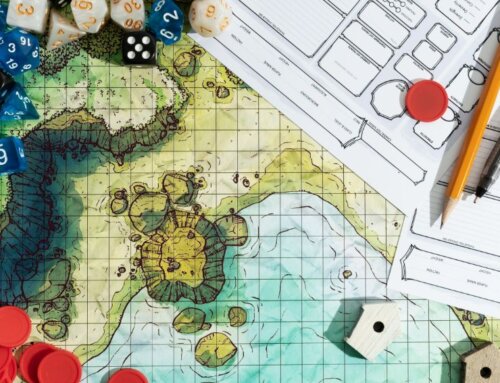Imagine yourself crafting entire universes and bringing characters to life through lines of code and pixels on a screen. Becoming a games developer requires a blend of technical skills and creativity.
But, where do you begin? The path to mastering this dynamic field involves a strategic combination of education, practice, and real-world experience.
By navigating the realms of programming languages, project portfolios, and industry connections, you can unravel the secrets to launching a successful career in game development.
Key Takeaways
- Acquire education in computer science and game design
- Develop strong programming skills in C++, C, and Java
- Build a diverse portfolio showcasing problem-solving abilities
- Gain industry experience through internships and collaborations
Education and Qualifications
To excel as a game developer, you must acquire a solid educational foundation and relevant qualifications in fields like computer science or computer engineering. Specialized degrees or minors in game design can enhance your skills in understanding player psychology, storytelling, and game mechanics.
Staying abreast of technology trends is crucial as the gaming industry evolves rapidly. Familiarizing yourself with game development engines like Unity and Unreal Engine is essential, along with mastering programming languages such as C# and C++. Strong math and physics skills are also vital for creating realistic game environments and mechanics.
Developing Programming Skills
Enhance your game development journey by honing your programming skills through mastering popular languages like C++, C#, and Java. Coding practice is essential to enhance your skillset and problem-solving capabilities. Regularly challenging yourself with coding exercises and projects will solidify your understanding and proficiency in game development programming.
Consider taking online courses or attending workshops focused on game development to stay updated with industry trends and best practices. Collaborating with other developers on projects not only provides practical experience but also allows you to learn new coding techniques. Additionally, participating in hackathons or game development competitions can push you to think creatively and showcase your programming skills to a wider audience.
Building a Strong Portfolio
Mastering programming skills like C++, C#, and Java not only hones your game development capabilities but also sets the foundation for building a strong portfolio that showcases your range of skills and experiences.
When creating your portfolio, include a variety of game projects that highlight your proficiency in game design and development. Showcase your best work, emphasizing projects that demonstrate your problem-solving abilities and ability to create engaging gameplay experiences.
Ensure each project is clearly described, detailing your contributions and the challenges you overcame. Regularly update and refine your portfolio with new projects to stay relevant in the industry.
Your portfolio should reflect your passion for game development and your dedication to honing your craft, making it a compelling showcase of your talent in the art portfolio.
Gaining Industry Experience
Embark on a journey to gain valuable industry experience in game development through internships, competitions, and collaborations with seasoned professionals. Dive into creative projects, such as game design competitions, hackathons, and game jams, to hone your skills and enrich your portfolio.
Engage in open-source projects and join indie game development teams to learn from experienced developers and expand your network. Seek mentorship from industry veterans to receive guidance and feedback that will propel your growth.
Attend game development conferences, workshops, and networking events to stay abreast of trends and technologies. By immersing yourself in these opportunities, you’ll acquire the practical knowledge and hands-on experience necessary to succeed in the competitive world of game development.
Networking and Internships
Networking with professionals in the gaming industry opens doors to valuable insights and potential job opportunities, while internships at game development companies provide hands-on experience and crucial industry connections. Attending networking events and conventions is key to expanding your industry connections and meeting potential employers and colleagues.
Online platforms like LinkedIn and game development forums offer additional avenues to connect with industry professionals and stay updated on industry trends. Joining local game development meetups or clubs can also provide valuable networking opportunities and potential collaborations.
Career Progression and Growth
To progress in your career as a game developer and achieve growth, consider expanding your skill set and seeking opportunities in specialized areas of game development. With experience, game developers can advance to lead developer roles or transition into game designer positions.
Exploring opportunities to work on AAA titles with larger game development studios can provide significant career growth. Specializing in areas such as AI programming or game engine development can enhance your career prospects and set you apart in the industry.
Additionally, freelancing or starting an independent game development studio presents alternative career paths for developers looking to carve their own niche. Networking at industry events and conferences is crucial for opening doors to new opportunities and fostering career advancement in the field.
Conclusion
Congratulations on taking the first steps towards becoming a games developer!
By obtaining a relevant degree, honing your programming skills, building a strong portfolio, gaining industry experience, and networking through internships, you’re well on your way to a successful career in game development.
Keep pushing yourself, stay curious, and never stop learning.
The gaming industry is waiting for your unique creativity and talent to make a mark.
Good luck on your exciting journey ahead!
More info:
https://ps3trophies.co.uk/entertainment/2024/09/19/how-old-is-daz-games/
https://ps3trophies.co.uk/entertainment/2024/09/18/best-doctor-who-games/






Leave A Comment